Nowa-days we often hear about people struggling with things like identity crises, difficulties finding purpose in life, and lack of direction. These can be difficult struggles to have, and they can have a significant impact on our moods.
Not having a clear sense of who one is and why one is here naturally leads to a sense of meaninglessness and confusion about what to do in life. The often-implied remedy: ‘do what everyone else is doing’.
Not the worst advice, really, as what everyone else is doing must have some value to it. Otherwise, they would do something else, right?

Should I Do What Others Do?
In this modern world we can follow the general patterns that work for most people and still feel out of place. For example, a person who is academically strong will often be told that they need to become a doctor or a lawyer.
They are told that if they go down such a path, they will have lots of money and gain high social status. What’s not to like?
So, they work hard, push through studies and exams, not really of personal interest, but the gold is in sight further down the road, so they keep going. It is strange then that when the now Lawyer has reached the milestone, she’s not happy.
She still feels out of place and wishes she had a role where she could work with numbers instead of people. She also wishes that she had more free time to spend time with family and friends, and that she could live away from the city and go hiking in the country hills on the weekends. She feels trapped and out of touch.
What If Nothing Appeals To Me?
We also have the person who takes the opposite approach to the problem, perhaps understandably so. He avoids taking any path in life and stays at home playing video games or watching TV-shows where he at least feels some excitement.
People continue to tell him ‘You need to go to school’, ‘Get a job’, and ‘You are useless.’ All he can think when he hears this is ‘School is boring, jobs are boring, and yes, I know I am useless. I believe you.’ No point engaging with a world one does not fit into, is it? And yet, not engaging with the world leaves him increasingly isolated, purposeless, anxious and depressed.
In both cases we see that something essential is missing in the person’s life, the expression of their own unique character and interests. Likelihood is that they don’t even know what these are.
It is possible that no one has ever encouraged them to explore them. Rather than focusing on their individuality and uniqueness, their natural interests, and skills, they have been pushed towards sameness and ‘fitting in’.
So, what could we do instead? How do we find our unique qualities and put these into practice?
Jungian Psychologist and founder of Archetypal Psychology, James Hillmann proposed a useful framework which he called ‘The Acorn Theory’. This theory suggests that just like an acorn contains the plan for the oak tree it wants to grow into, we contain a certain essence that wants to be realised through us.
With this framework, we can think of the examples above as people who have been alienated from their acorn. But how could they find it again, and get back on track?
I will suggest two strategies here that may serve as a starting point. For a deeper dive into this topic, I highly recommend Hillmann’s book ‘The Soul’s Code.’
1) Reflect On Your Childhood Experiences, Interests And Fantasies
Often, the seeds of your acorn can be found in the things that captivated you as a child. Even if what captivated you at the time is outdated or ‘childish’, think of up to date or more grown-up versions that they correspond with.
For example, if you were captivated by mechanics or electronics, you may be drawn to engineering, as either a hobby or a job. If you were playing with caring for dolls, you may be drawn to experiences and professions that involve people. That is not to say that your acorn must become your profession.
An acorn that gets expression through a hobby will reward you with more energy to go through with your day job. The trick is to try and learn and get closer and closer to aligning your activities with the acorn’s plan.
2) Embrace Your Uniqueness
Remember that your acorn is unique to you, and it may not conform to societal expectations or norms. Try to embrace your individuality and the path that feels most authentic to you.
Ask yourself the crucial question: what am I genuinely interested in? No self-deception.
In the example of the lawyer above, you could see that what she was longing for already existed in her mind. If nothing comes to mind, then explore different activities, and pay attention to how some feel more in tune with your interests than others and use what you learn as a guide toward more and more captivating activities.
The knowing one’s acorn is not just about finding one thing you like, nor is it a destination. It is more like a journey of alignment.

Final Thoughts
The journey to discover and align with your unique self is an ongoing process. In a world that often emphasizes conformity and external expectations, it is useful to remember that your path may not mirror the conventional routes laid out by society. James Hillman’s “Acorn Theory” provides a valuable perspective, reminding us that we each carry within us a distinctive essence yearning for expression.




